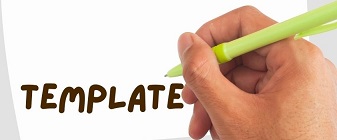Development of human resources In the perspective of the career development of teachers at the State Vocational School in Makassar City
(1)
(2)
(3)
(*) Corresponding Author
DOI: https://doi.org/10.26858/ja.v6i1.9692
Abstract
Keywords
Full Text:
PDFReferences
De Smul, M., Heirweg, S., Van Keer, H., Devos, G., & Vandevelde, S. (2018). How competent do teachers feel instructing self-regulated learning strategies? Development and validation of the teacher self-efficacy scale to implement self-regulated learning. Teaching and Teacher Education, 71, 214–225. https://doi.org/https://doi.org/10.1016/j.tate.2018.01.001
Djamarah, S. B. (2004). Pola komunikasi orang tua dan anak dalam keluarga (sebuah perspektif pendidikan Islam). Rineka Cipta.
Gu, Y., Tang, T., Wang, H., & Zhou, W. (2019). Sustainable career development of new urban immigrants: A psychological capital perspective. Journal of Cleaner Production, 208, 1120–1130. https://doi.org/https://doi.org/10.1016/j.jclepro.2018.10.210
Hamilton, E. R. (2016). Picture This: Multimodal representations of prospective teachers’ metaphors about teachers and teaching. Teaching and Teacher Education, 55, 33–44. https://doi.org/https://doi.org/10.1016/j.tate.2015.12.007
Kamaluddin, L. O. A., Haerul, H., Akib, H., & Salam, R. (2018). Analysis Of Factors Influencing Student Learning Achievement.
Miles, M. B., Huberman, A. M., & Saldana, J. (2014). Qualitative data analysis: A method sourcebook. In CA, US: Sage Publications.
Niswaty, R., Rusbiati, S., Jamaluddin, J., & Salam, R. (2017). The Influence of Teacher’s Reinforcement for Students Motivation. International Conference on Education, Science, Art and Technology, 148–152.
Phillips, R. C. (1996). The Army Civilian Training, Education, and Development System (ACTEDS) Plan for Historians. Army History, (37), 11–14. Retrieved from http://www.jstor.org/stable/26304358
Reeves, T. D. (2017). Pre-service teachers’ data use opportunities during student teaching. Teaching and Teacher Education, 63, 263–273. https://doi.org/https://doi.org/10.1016/j.tate.2017.01.003
Rudolph, C. W., Zacher, H., & Hirschi, A. (2019). Empirical developments in career construction theory. Journal of Vocational Behavior, 111, 1–6. https://doi.org/https://doi.org/10.1016/j.jvb.2018.12.003
Saggaf, M. S., Nasriyah, N., Salam, R., & Wirawan, H. (2018). The Influence of Teacher’s Pedagogic Competence on Learning Motivation of Student of Office Administration Expertise Package.
Saggaf, M. S., Salam, R., & Rifka, R. (2017). The Effect of Classroom Management on Student Learning Outcomes. International Conference on Education, Science, Art and Technology, 98–102.
Salam, R., Akib, H., & Daraba, D. (2018). Utilization of Learning Media In Motivating Student Learning. 1st International Conference on Social Sciences (ICSS 2018). Atlantis Press.
Sarmiento, F. O., & Butler, D. R. (2011). Where Do Mountain Geographers Publish?: Disciplinary Trends and Career Development Choices. Mountain Research and Development, 31(1), 61–67. Retrieved from http://www.jstor.org/stable/mounresedeve.31.1.61
Shieh, R. S. (2012). The impact of Technology-Enabled Active Learning (TEAL) implementation on student learning and teachers’ teaching in a high school context. Computers & Education, 59(2), 206–214. https://doi.org/https://doi.org/10.1016/j.compedu.2012.01.016
Tekavc, J., Wylleman, P., & Cecić Erpič, S. (2015). Perceptions of dual career development among elite level swimmers and basketball players. Psychology of Sport and Exercise, 21, 27–41. https://doi.org/https://doi.org/10.1016/j.psychsport.2015.03.002
Viegas, C., Pavani, A., Lima, N., Marques, A., Pozzo, I., Dobboletta, E., … Alves, G. (2018). Impact of a remote lab on teaching practices and student learning. Computers & Education, 126, 201–216. https://doi.org/https://doi.org/10.1016/j.compedu.2018.07.012
Widiyanti, W., Solehuddin, M., & Saomah, A. (2017). Profil perilaku narsisme remaja serta implikasinya bagi bimbingan dan konseling. Indonesian Journal of Educational Counseling, 1(1), 15–26.
Article Metrics
Abstract view : 276 times | PDF view : 44 timesRefbacks
- There are currently no refbacks.
Copyright (c) 2019 Jurnal Ad'ministrare

This work is licensed under a Creative Commons Attribution-NonCommercial-NoDerivatives 4.0 International License.






























 under a
under a